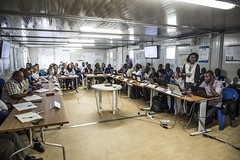Commission Staff Working Document: Measuring progress towards circular economy in the European Union – Key indicators for a monitoring framework.
This is an article about creating a monitoring framework for the circular economy in the European Union. It discusses what a circular economy is and the benefits of having a monitoring framework.



